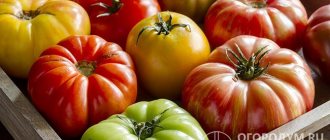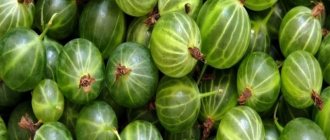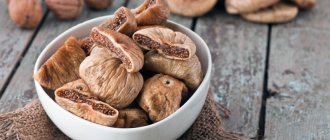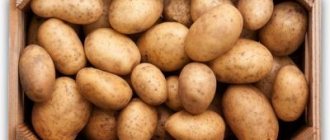/Order/
Typically, when we bring fruit home, we do one of two things: put everything in a vase on the counter or throw it in the refrigerator. There's not much room for error since almost all fruits can be stored in the refrigerator, and almost all fruits can last at least a couple of days at room temperature. But if you want to get maximum pleasure and benefit from the gifts of nature and save your budget, it’s worth understanding this issue a little.
In this material, you will learn the general principles of storing bananas, apples, pears, lemons, tangerines and other fruits, find a reminder on the storage conditions and periods of different types of fruits and berries, and also get ideas for organizing the content of “vitamins” at home.
General rules for storing fruits and berries
First, let's look at the general rules for storing seasonal berries and fruits at home.
For example, did you know that you can’t store damaged (with cracked skin, cut, etc.) and whole fruits together? The fact is that the former will certainly accelerate the deterioration of the latter due to the increased release of ethylene gas, which has such unusual properties. This gas has neither color nor smell, a person does not feel it, but fruits do, as their quickly changing appearance will certainly testify to.
By the way, about ethylene - among berries and fruits there are real champions in its content - it is better to generally remove such specimens away from the rest, unless, of course, you have the goal of accelerating their ripening. Apples, pears, melon, apricots, bananas, figs, nectarines, peaches - remember them and place them away from the rest, whether in a dinner bowl or in the refrigerator. Or better yet, pack it in a separate paper bag.
Now about the refrigerator. You can store almost all seasonal fruits in it without losing their quality (there are exceptions, we’ll talk about them below) - some for about a day, some even for a week or longer. You just need to know the characteristics of each and even create the correct storage conditions for it in the refrigerator: some will “prefer” to be with neighbors, some will be alone, some will even “demand” individual packaging, while for others an ordinary shelf and etc.
The general rule is that fruits and berries in the refrigerator must be freed from excess destructive dampness so that mold does not appear. Of course, they need to be positioned so that nothing leaks or drips next to them, and especially on them. You shouldn’t even wash fruits (and especially delicate berries!) before sending them for cold storage. If you did this out of ignorance, be sure to dry each fruit with at least kitchen paper towels before putting it in the refrigerator.
A plastic bag is not the best container for storing fruits and berries in the refrigerator, because... it does not allow air to pass through, but collects moisture on its inner surface. If there is no other option, at least make a lot of holes in the bag before storing fruit in it.
A refrigerator is good for very ripe fruits - a low temperature (even if only for a short time) will help them not cross the line of overripeness and softening for some time and stay fresh longer.
It is better to eat chopped fruits immediately, but if you haven’t eaten everything, put them in the refrigerator only in a separate airtight container for the reasons described above.
If any one in the general fruit compartment has become rotten or moldy, it must be removed immediately, and the box itself and neighboring fruits must be thoroughly washed and dried before being put back into the refrigerator.
Selecting a location
An absolutely suitable place to store fruit is a well-ventilated, cool, rodent- and insect-free area. Ideal if it is a cellar, basement or garage.
In addition, humidity is of great importance, which ideally should be about 80%. The most suitable temperature in winter is from 1 to 4°C; in spring and summer it should not exceed 12°C. Fruits should not be frozen, because in this case they will lose vitamins, as well as taste and smell.
Cleanliness of the premises is a matter of course. If this is a cellar or basement, then it is advisable to disinfect and whitewash the walls. Wash and dry the shelves and containers in which food will be stored thoroughly.
It’s good if the fruit boxes are sealed, but don’t forget about their need for regular ventilation.
Separate storage is very important for some types of fruit, especially apples and pears, as they easily take on other odors. Moreover, apples emit ethylene, which leads to accelerated ripening of other fruits. Some fruits, such as bananas, can easily spoil other types of fruit.
How to properly store apples
Apples, if you didn’t know, are perfectly stored even without a refrigerator - they are usually placed there for very long-term storage or at the stage of overripeness.
Ordinary and slightly unripe fruits will feel great just on the balcony or on a shelf in the kitchen, in a cool, dry place - as long as it is away from the stove with its heat and steam, and out of direct sunlight.
Large apples last longer than small ones.
As we have already mentioned, apples emit a lot of ethylene, so it is better to store them away from other fruits and berries, preferably in a paper bag, wooden box or wicker basket, if in the refrigerator, then away from the freezer.
If your goal is to keep seasonal apples at home for as long as possible, each of them can be wrapped in oiled parchment paper and layered in a box of sawdust.
Summer apples spoil the fastest - their lifespan in an apartment is about 10 days. Fruits of autumn varieties can be stored at room temperature for 2-4 months, and winter varieties (the hardest and thickest-skinned) - up to 7-8 months.
- When and how to harvest apples and pears
Memo to the gardener - save it for yourself!
Sliced apples left on a plate can be sprinkled with lemon juice - this will prevent the cut from oxidizing (darkening) longer.
Important nuances
Among local seasonal apples, autumn and winter varieties are ideally stored: Antonovka, Sinap, Ligol, Berkutovskoe, Bogatyr, Martovskoe, Golden.
The record holder for keeping quality among pears is Chizhevskaya, Kondratyevka, and winter Michurina.
Every 2-3 days it is necessary to sort through the fruits, removing those that have begun to spoil. Signs of damage:
- the fruit becomes soft;
- the skin loses its shine and elasticity;
- Dark spots may appear on the surface.
If condensation has formed inside the fruit package during storage, the fruits are removed and dried. The bag or container is replaced with a new or dry one. To absorb moisture that appears during storage, you can put several cotton pads, activated carbon tablets, or zeolite into the bag.
A large number of fruits that are beginning to spoil quickly can be placed in an electric dryer. The dried semi-finished product decreases in size several times. It will keep in a dry and dark place for several months before further use. Most vitamins remain in the product with this processing method.
Fruits cut into pieces cannot be stored at room temperature; after just a few hours, most of the vitamins in them are destroyed. They can be kept in the refrigerator for no more than a day, tightly packed in cling film or foil. The exception is lemon. If you wrap the half in foil and put it in the refrigerator, the fruit will retain its aroma and juiciness for about a week.
On sale you can find special bags that absorb ethylene, which is released by fruits. They extend the shelf life of products.
How to properly store pears
To keep pears fresh, it is better to pick them from the tree slightly unripe and store them, like apples, in a cool, dry place in a room away from sunlight. This can be a paper bag, basket or box, where the fruit is laid out in layers, interspersed with parchment paper or dry sawdust (straw, shavings).
The most tender part of the fruit, which easily wrinkles under pressure, is the pulp at the stalk. Therefore, when storing apples and pears, they should be placed with their stems facing up.
For better preservation, it is recommended to place only soft, overripe fruits in the refrigerator.
Just like apples, the shelf life of pears for fresh fruits varies, depending on the variety: summer pears are stored the shortest (about two to three weeks), autumn pears - up to 2 months, winter - up to 4 months.
- How to keep apples and pears fresh until the new harvest
We tell you how to preserve the harvest of apples and pears at home so that you can enjoy fresh fruits all winter.
Potato
It is best to store potatoes in a dark, cool place with good air circulation. To prevent sprouts from appearing on the tubers, put 2-3 apples in a bag or box with potatoes. The apple absorbs moisture faster and the potatoes will not germinate. My potatoes are stored on the balcony in a plywood box insulated with foam plastic. When there is severe frost outside, I cover the box with a sheepskin coat.
It is not advisable to store potatoes in the refrigerator, because moisture and cold negatively affect the taste of the tubers.
How to properly store cherries and other berries
If you have a bumper harvest of delicate berries this year - cherries, strawberries, raspberries, blueberries, blackberries, etc. - of course, it will be easiest to store it frozen in small packaging bags in the freezer and use it as needed.
- Ecological gardening - how to get an excellent harvest of berries without “chemicals”
Do you dream of growing an environmentally friendly crop of currants, raspberries, gooseberries or other berries? Then our gardening secrets will come in handy for you!
However, you want to see any berry fresh on the table during the season, and for as long as possible! What to do?
To preserve the berry harvest longer, it must be placed in the cold as quickly as possible. And before storing in the refrigerator, prepare a vinegar “bath” for the berries. Dilute vinegar with water in a ratio of 1:3 and rinse the berries in this solution. Then they must be rinsed with clean water and dried, for example, on paper napkins. Carefully place the prepared berries in one layer in glass or plastic containers lined with paper and do not close tightly to ensure the evaporation of excess moisture.
Cranberries, gooseberries, cherries and cherries can be placed in the refrigerator in large volumes and without vinegar treatment - these berries should not be washed at all before storing. In addition, do not cut off the stalks - with them the berries will be stored longer.
Strawberry
Fresh berries are washed, dried on a paper towel, and placed on a tray for the freezer. First lay a film on it. After complete freezing, the strawberries can be put into bags.
If you need to store fresh fruits for some time, they are not washed, as moisture causes rotting. They should be rinsed before use.
Place the strawberries in a plastic or cardboard box with ventilation holes. This way it can be stored for up to 4 days. Then the fruits will release juice, and you can make jam from them.
The harvest will retain its original taste and appearance if optimal conditions are selected for it. Then you can enjoy the benefits of fruits for a long time.
How to properly store peaches, nectarines, apricots
Peaches, nectarines and apricots (especially at the stage of full ripeness) are difficult to store - they wrinkle easily, do not tolerate crowding and lack of oxygen (for example, in a thick plastic bag).
To maintain freshness, fruits collected or purchased before final ripening should be stored in a paper bag or in a special box with cells in a cool and dry place, in one layer.
Fully ripened apricots, peaches and nectarines are sent to the refrigerator - dry and again in one layer, away from the freezer. At zero temperature, depending on the variety and storage conditions, whole fruits can be stored for up to a month.
Useful tips
The paper in which the fruit is wrapped can be kept in refined vegetable oil. The oil film will help preserve the fruit longer, as it prevents moisture evaporation.
If you immerse each fruit in melted wax or medical paraffin, its surface becomes inaccessible to air, and hence, spoilage. Even in a warm place, such fruits will last for more than a month without spoiling. Before consumption, the skin of such fruits is removed along with the wax film.
We recommend:
How long can frozen mushrooms be stored in the freezer?
If you tie the tails of bananas with foil, the fruits will not turn black for up to 7 days. It is better to keep the bunches suspended.
It is recommended to divide large bunches of grapes into small parts before storing, without tearing the berries from the branch. It is kept in a plastic container or plastic bag; in paper packaging it will dry quickly.
How to properly store grapes
Grapes are a capricious fruit in terms of storage. In the refrigerator, it should be stored in the warmest place, and not for long and only in individual plastic or paper bags with holes. In this case, the clusters should be dense, and the berries on them should be dense. Soft grapes are almost not stored at all - they should be eaten as quickly as possible.
There are also several ways to store grapes at room temperature. So, you can hang the brushes on the veranda or balcony, in a cool, dry place on a rope under the ceiling, so that they do not touch each other. You can carefully arrange the bunches in one layer in a box covered with thick paper, or on racks also lined with dry material (deciduous tree sawdust, straw). With these storage methods, check the condition of the brushes daily and remove damaged berries, otherwise mold will quickly spread to neighboring ones.
Commodity neighborhood
To preserve products, you need to be mindful of their proximity to other products. There is a type of fruit that, if placed in the wrong environment, immediately begins to deteriorate and rot. Apples and pears emit a negative element - ethylene, which accelerates the ripening of the fruit.
If there are fruits nearby that are already ripe, they will quickly begin to deteriorate. As a result of this, the apple must be stored separately. The same story with bananas, plums, mangoes and kiwis. They also highlight the same element. If you store everything, then the fruits can spoil all the qualities and taste of each other.
Cherries can be stored with other products because they are resistant to other odors.
Kiwi, plum, tomato and avocado can be stored together. They do not affect each other's taste and do not spoil each other.
How to properly store tropical fruits
All sorts of delicate tropical fruits - bananas, citrus fruits, melons, pineapples, pomegranates, persimmons, kiwis, etc. – they don’t like the refrigerator, they get damp there, lose their aroma and taste, and absorb foreign odors. It is better to keep such fruits at a temperature of 8-13°C, you can wrap each one in paper.
To preserve a bunch of bananas longer, it is also recommended to wrap the upper part (the interlocking “legs”) with cling film.
As you can see, keeping seasonal fruits and berries fresh in the summer is not so difficult, even in the absence of a refrigerator. You just need to remember that each of them has their own “preferences” and follow our simple advice.
Cabbage
I store white and blue cabbage in a cool place, wrapping the heads in paper. I don’t remember where I heard this advice, but I liked the fact that it almost doesn’t spoil (the top leaves dry out a little). And so that it does not take up much space in the refrigerator, I put it on the balcony, wrapping each head of cabbage in paper. Do not use newspapers; the ink from printing can be absorbed into the vegetable, and consuming such products is very dangerous.
Dry storage
If vegetables and fruits are purchased for long-term storage, they should not be washed immediately. Heavy dirt should be removed from products exclusively using a dry method; they can be wiped with soft napkins or paper towels, but under no circumstances should they be washed with water. Water can destroy the protective invisible film of fresh food, resulting in rotting and mold formation. This way you can keep fruits or vegetables fresh for a long time.
If a person did not know this rule and washed the food, it is important to very carefully wipe the vegetables and fruits until dry. Dryness prevents rotting. If the products have not been washed, but they tend to release liquid (for example, very ripe fruits can release juice), before storing them, you need to line the bottom of the container where the fruits or vegetables will be placed with dry paper towels. The paper will absorb all the secreted juices and prevent subsequent rotting or mold.
Garlic
The biggest hassle I had was storing garlic. The fact is that until the New Year, garlic heads are stored perfectly in the refrigerator, on the balcony, and in the pantry. But January-February comes, and the garlic begins to sprout, the cloves wither, deteriorate and turn yellow. Whatever I tried.
Two methods helped: burn the place where the roots sprout over the burner and sprinkle the garlic cloves with salt or flour. I always have a jar like this in the refrigerator - it contains garlic cloves in their husks, sprinkled with flour. You can also peel the teeth, put the garlic in a jar and add vegetable oil. It turns out that time has already been saved on peeling the garlic, and the aromatic oil can be used for frying other products.











